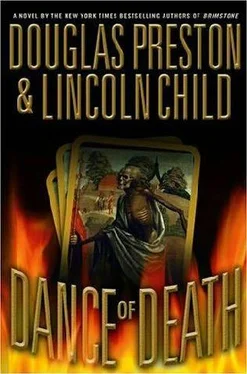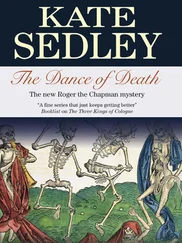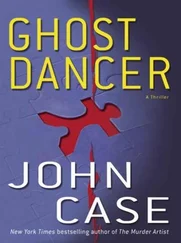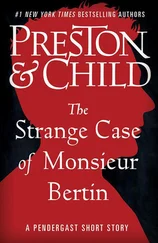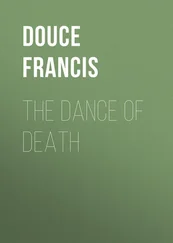"You're an ass. You don't know anything about me."
"My dear Viola, rather than worrying about what I know, you should be worrying about two things you don't know-and should. First, you need to know that you cannot get out of this room. The walls, floor, ceiling, and door are made of riveted ship's hull steel. The windows are two layers of unbreakable, soundproof, bulletproof glass. The glass is one-way, which means that you can see out but those outside-and there will not be any-cannot see in. I tell you this only to save you trouble. There are books in the bookcase, drinking water from the tap, and some hard candies in the bottom drawer of the bureau for you to suck on."
"My, you've gone to a lot of trouble and expense. Boiled sweets, even."
"Indeed."
"Indeed." She mocked his courtly drawl. "You said you had two things to tell me. What's the second?"
"That you must die. If you believe in a supreme being, be sure to resolve any unfinished business you have with Him. Your death will take place tomorrow morning, at the traditional time: dawn."
Almost without intent, Viola laughed: an angry, bitter laugh. "If you could only hear what a pompous ass you sound! You will die at dawn. How histrionic."
Diogenes took a step back, a frown passing fleetingly over his face before neutrality returned. "What a sprightly vixen you are."
"What have I done to you, you bloody nutter?"
"Nothing. It is what you did to my brother."
"I did nothing to your brother! Is this some kind of sick joke?"
A dry chuckle. "It is indeed a sick joke, a very sick joke."
Anger and frustration burned away her fear. Viola slowly tightened her grip on the shard of glass. "For such a revolting man, you seem insufferably pleased with yourself."
The dry chuckle died off. "My, my. We certainly have a sharp tongue this morning."
"You're crazy."
"I have no doubt that, by the standards of society, I am clinically insane."
Viola's eyes narrowed. "So you're a follower of the Scottish psychiatrist R. D. Laing."
"I follow nobody."
"So you believe, in your ignorance. Laing said, 'Mental illness is the sane response to an insane world.'"
"I commend the gentleman-whoever he is-for his insight. But my dear Viola, I don't have all day to exchange pleasantries-"
"My dear Diogenes-if only you knew just how boorish you sound." She put on a deadly accurate imitation of his languid accent. "How dreadfully sorry I am that we can't continue this charming conversation. You and your feeble attempts at breeding."
There was a silence. Diogenes had lost his smile, but if other thoughts were going through his head, they did not express themselves on his face. Viola was amazed at the depth and clarity of her own anger. She was breathing fast, and her heart was going like mad in her chest.
Diogenes finally sighed. "You are as chattery as a monkey and almost as smart. If I were you, I'd be a little less garrulous and face your end with dignity, as befits your station."
"My station? Oh my God, don't tell me you're another of those American poons who get their willy up meeting some red-nosed baronet or doddering old viscount. I should have known."
"Viola, please. You're getting overexcited."
"Wouldn't you be a little overexcited if you had been lured overseas, drugged and kidnapped, locked in a room, and threatened-"
"Viola, ça suffit! I will be back in the wee hours of the morning to carry out my promise. Specifically, I will cut your throat. Twice. In honor of our Uncle Comstock."
She suddenly stopped. The fear had come back in full force. "Why?"
"Finally, a sensible question. I am an existentialist. I carve my own meaning out of the suppurating carcass of this rotting universe. Through no fault of your own, you have become part of that meaning. But I do not feel sorry for you. The world is abrim with pain and suffering. I simply choose to direct the festivities instead of offering myself up as another witless victim. I take no pleasure in the suffering of others-except one. That is my meaning. I live for my brother, Viola; he gives me strength, he gives me purpose, he gives me life. He is my salvation."
"You and your brother can go to hell!"
"Ah, dear Viola. Didn't you know? This is hell. Except that you are about to gain your release."
Viola leaped off the bed and rushed at him, shard raised, but in the blur of an instant she found herself pinned to the floor. Somehow Diogenes now lay on top of her, his face inches from hers, his breath, sweetly smelling of cloves, in her face.
"Good-bye, my lively little monkey," he murmured, and kissed her tenderly on the lips.
And then, in one swift, batlike movement, he rose and was gone, the door slamming behind him. She flung herself on it but it was too late: there was the sound of oiled steel sliding into steel, and the door felt as cold and unyielding as a bank vault.
D'Agosta didn't need a day to consider Hayward's offer; he didn't even need ten minutes. He walked straight out of the building, pulled out the cell phone Pendergast had given him, and asked for an emergency meeting.
A quarter of an hour later, as he stepped out of a cab at the corner of Broadway and 72nd, the memory of his encounter with Laura was still raw. But he told himself he couldn't think about that right now. He had to bury his personal feelings until the crisis was over- assuming, that is, it would ever be over.
He walked east down 72nd. Ahead, in the distance, he could see Central Park, the brown trees skeletal in the January chill. At the next intersection, he stopped and pulled out the cell phone again. Call me again once you reach Columbus and 72nd, Pendergast had said. D'Agosta was only a block away from Pendergast's apartment at the Dakota. Could he possibly be at home? It seemed outrageous, given the circumstances.
He flipped open the phone, dialed the number.
"Yes?" came the voice of Pendergast. In the background, D'Agosta could hear the tapping of keys.
"I'm at the corner," he replied.
"Very good. Make your way unobserved to 24 West 72nd. The building is mixed residential and commercial. The entrance is locked during working hours, but the receptionist habitually buzzes in anyone who looks normal. Take the stairs to the basement and locate the door marked B-14. Make sure you are alone. Then knock slowly, seven times. Have you got that?"
"Got it."
The line went dead.
Putting the phone away, D'Agosta crossed the street and continued toward the park. Up ahead, at the far corner, he could see the crenellated, sand-colored bulk of the Dakota. It looked like something out of a Charles Addams cartoon. At its base, beside a huge Gothic entrance, was a doorman's sentry box. Two cops in uniform loitered nearby, and three squad cars were parked along Central Park West.
It seemed the cavalry was already in place.
D'Agosta slowed his pace, keeping as near as he could to the building fronts, a wary eye on the police.
Twenty-four West 72nd Street was a large brownstone structure halfway down the block. He glanced around again, saw nobody suspicious, rang the buzzer, gained admittance, and quickly ducked inside.
The lobby was small and dark, the walls covered with dingy-looking gray marble. D'Agosta nodded to the receptionist, then made his way down the staircase at the rear of the lobby. There was a single basement hallway, with metal doors set into the cinder-block walls at regular intervals. It was the work of sixty seconds to find the door marked B-14. He glanced around once again, then rapped on the door seven times, as instructed.
For a moment, silence. Then, from within, the sound of a bolt being slid back. The door opened and a man wearing the black and white uniform of a doorman appeared. He glanced up and down the hall, then nodded to D'Agosta and ushered him inside.
Читать дальше
